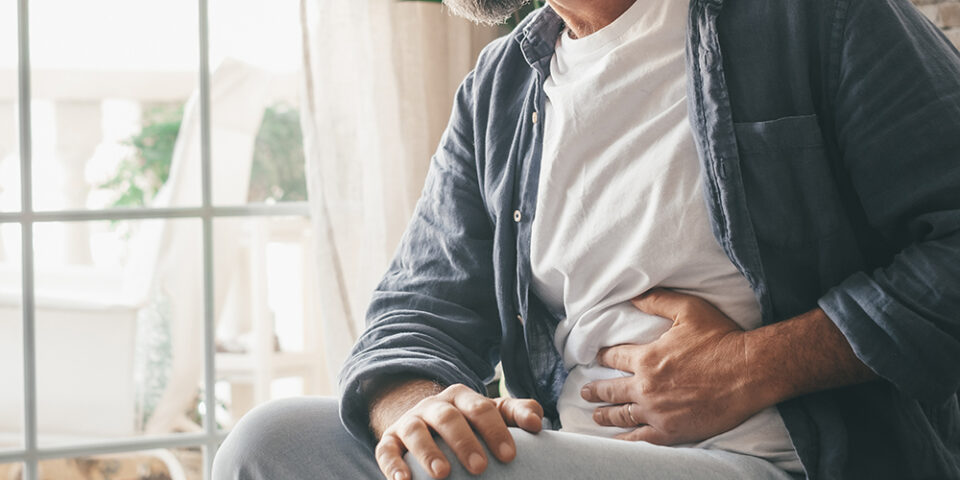How to recognize symptoms of pancreatitis
Pancreatitis is a swelling of the pancreas, which can be painful and cause serious problems if not treated quickly. Gastroenterologist Veeral Oza, MD, explained what signs and symptoms of pancreatitis to look for so you can seek care early, as well as how to prevent it from occurring again.
What is the pancreas?
The pancreas is an organ in the abdomen that helps make insulin and glucagon, hormones that control glucose (blood sugar) levels in the blood, as well as enzymes that help digest food.
What causes pancreatitis?
“The number one cause of pancreatitis in the U.S. is gallstones and a close number two is alcohol,” Dr. Oza said, “but they often switch back and forth.”
Heavy drinking can cause pancreatitis because of the way alcohol is metabolized.
Gallstone pancreatitis occurs when the pancreas swells due to irritation caused by stones coming from the gallbladder. This can happen if you frequently eat a fatty diet.
Gallstones are debris that is formed in the gallbladder. These stones are pumped out of the gallbladder into the small intestines. A stone can end up in the bile duct, and as it gets pumped out into the small intestine, a portion of the bile duct can go through the pancreas and irritate it, resulting in pancreatitis.
Other causes of pancreatitis include:
- Autoimmune pancreatitis where the pancreas attacks itself.
- Medications.
- Genetic factors that cause recurrent pancreatitis where the pancreas swells over and over again.
What are the warning signs and symptoms of pancreatitis?
Often, patients won’t have any major warning signs, but mild to severe pain can occur.
“Patients complain of a dull, achy sensation in the middle of the body that radiates to the back,” Dr. Oza said. “If it’s not diagnosed early, that pain can become severe and intense. I’ve had some of my female patients tell me that pancreatitis pain is worse than the pain of having a baby.”
How is pancreatitis treated?
Dr. Oza said it’s important to diagnose and treat pancreatitis early. The main treatment for pancreatitis involves IV fluids given at a hospital, as well as not eating for a few days to let the pancreas calm down. If the issue is gallstone pancreatitis, you might need surgery to remove the gallbladder.
Pancreatitis caused by an autoimmune condition can be treated with medication. If medication is the cause of your pancreatitis, stopping that medication will solve the problem.
Can you prevent pancreatitis?
“The only way you can prevent pancreatitis from happening in the first place is by being healthy and making a few lifestyle changes,” Dr. Oza said.
These lifestyle changes include:
- Avoid heavy alcohol use.
- Do not smoke.
- Eat a diet that’s low in fat and rich in fruits and vegetables.
“If your diet is low in fat and cholesterol, the risk of gallstones also goes down, therefore decreasing the risk of pancreatitis,” he added.
Find a doctor
Whether you’re looking for a primary care physician or need to see a specialist, we’re here to help with experienced, compassionate care near you.
Find a Doctor

